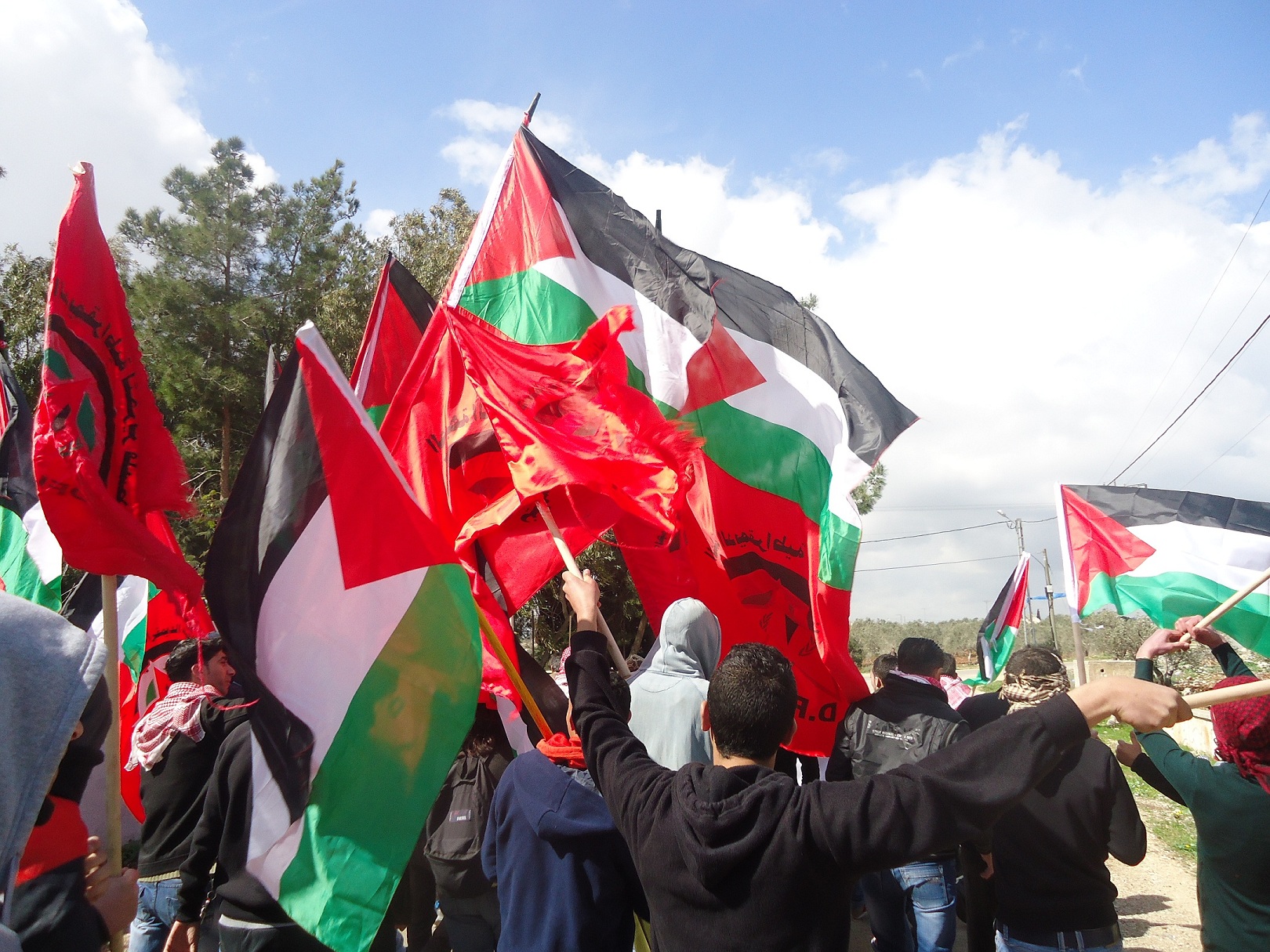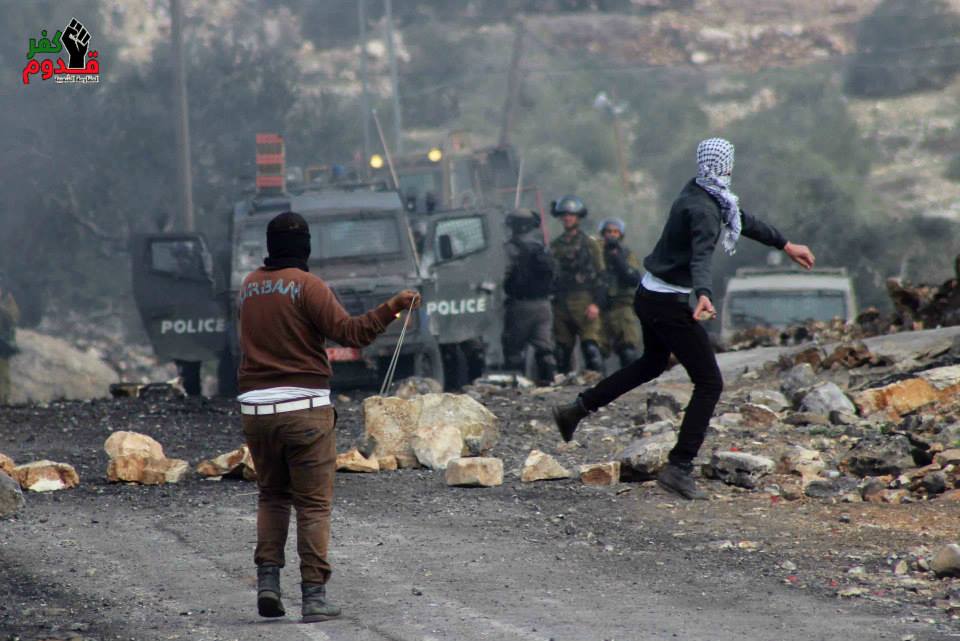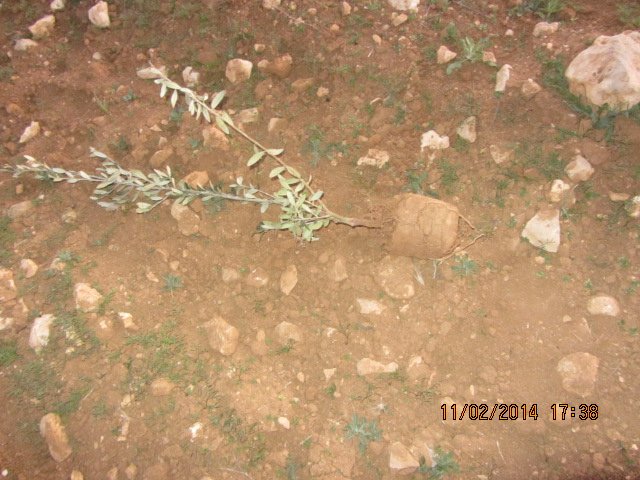-
Palestinian shot by live ammunition during demonstration in Tura
15th February 2014 | International Solidarity Movement, Nablus Team | Tura, Occupied Palestine On Saturday, February 15th, Demonstrators gathered at 11:30 a.m. by the village of Tura near the annexation wall to celebrate the 25th anniversary of the DFLP (Democratic Front for the Liberation of Palestine). People began chanting and marching in the direction of the checkpoint. […]
-
Four injured at weekly demonstration in Kafr Qaddom
14th February 2014 | International Solidarity Movement, Nablus Team | Kafr Qaddom, Occupied Palestine At approximately 10:00 a.m. on Friday, the Israeli army positioned themselves on top of the hill overlooking Kafr Qaddom and on the closed road that leads to the illegal settlement, Qedumim. As they did last week, the Israeli army attempted to portray […]
-
Eighty young olive trees uprooted in South Hebron Hills
14th February 2014 | Operation Dove | At Tuwani, Occupied Palestine On the afternoon of February 11, Palestinians discovered about eighty olive trees uprooted alongside bypass road 317 near the Susiya junction in the South Hebron Hills. The olive tree grove belongs to the Hushiya family from the nearby town of Yatta and had been […]
Action Alert An Nabi Saleh Apartheid Wall Arrests BDS Bethlehem Bil'in Cast Lead Demonstration Denial of Entry Ethnic Cleansing Farmers Gaza Global Actions Hebron House Demolition International law Israeli Army Jerusalem Live Ammunition Nablus Ni'lin Prisoner Ramallah Rubber-coated steel bullets Settlement Settlers Settler violence Tear-Gas Canister Video



